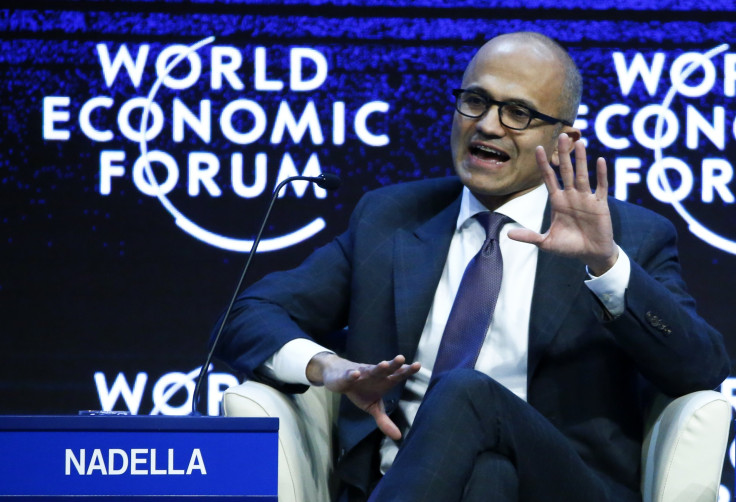Patently Desperate? IP Litigation Tops Innovation For Legacy Tech Giants IBM, Microsoft, Qualcomm

The lawyers were busy this week: IBM sued Priceline, claiming the travel site is violating its decades-old patents on e-commerce. Microsoft settled with Samsung over Redmond’s claim that it owns parts of Android. And the Chinese government extracted a $975 million settlement from Qualcomm after alleging the company wielded patents like a club to gain a monopoly in the chip industry.
The squabbles show that the so-called legacy companies that once dominated the tech scene but which have, to varying extents, seen their fortunes wane may be ready to use patent litigation over innovation as their trump card going forward.
Such a trend could have a chilling effect on startups in Silicon Valley and beyond. “Smaller companies will have to stay farther away from previously patented technology than might be warranted because they can’t afford lawsuits,” Rudy Telscher, a principal attorney at Harness Dickey, told International Business Times. “The little guy can’t afford litigation,” said Telscher, who argued and won a precedent-setting patent case before the U.S. Supreme Court last year.
The tech giants are standing by their right to exploit what they claim is hard-won innovation. IBM alone spent more than $5 billion on research and development last year. “It’s a huge investment,” IBM Chief Innovation Officer Bernard Meyerson told IBTimes in a recent interview. “We have foundational patents.”
IBM insists its claims against Priceline and sister units Kayak and OpenTable are legitimate. In documents filed Monday in federal court in Delaware, Big Blue claims Priceline purloined several key Web and e-commerce patents. “Rather than build its business on its own, Priceline has appropriated the inventions” named in the suit, IBM said in its court filing.
Among the patents at issue is one that describes technology IBM said it developed to make the 1980s-era Prodigy online service, which it co-founded, more responsive. The patent outlines a method for harnessing the power of the viewer’s PC to display online ads, making them more interactive. Another patent describes a way to preserve communications between shoppers and merchants during e-commerce transactions, while still another asserts IBM’s claim over single sign-on security technology.
Telscher said IBM has an “aggressive” stance when it comes to patents. “They’re not going to be afraid to assert them.” IBM filed a similar suit against Amazon in 2006. It was settled under terms that were not disclosed.
Priceline officials declined to comment, but a source familiar with the company’s thinking told IBTimes that it feels IBM’s patents are outdated, overly broad and won’t stand up in court. Priceline also could try to persuade the United States Patent and Trademark Office to void the patents under a process known as re-examination.
Microsoft, meanwhile, is claiming ownership over key parts of Google’s Android mobile operating system, insisting it’s derived from the open-source Linux OS. Linux, Microsoft maintains, relies on patented Windows technology. Numerous other device makers, including LG, HTC and Acer, previously have agreed to pay Microsoft royalties on Android, but Samsung held out until this week. “Samsung and Microsoft are pleased to announce that they have ended their contract dispute in U.S. Court,” the companies said in a joint statement.
Terms were not revealed, but it’s likely the deal follows the same pattern as Microsoft’s other Android-related settlements. Hardware makers pay licenses to the software maker that allow them to continue using Android without fear of further legal action.
Finally, there’s Qualcomm. The company allegedly used its extensive patent portfolio to dominate the market for mobile chips and related technologies in Asia. “Regulators in China chose to extract a penalty for how it wielded that power,” the Wall Street Journal noted. Qualcomm on Monday said it agreed to pay a $975 million penalty and ease the terms on which Chinese device manufacturers like Xiaomi and Huawei can license its 3G and 4G mobile communications technology. “We are pleased that the resolution has removed uncertainty surrounding our business in China,” Qualcomm CEO Steve Mollenkopf said in a statement.
All three companies that made headlines this week for aggressively pushing their patents were atop the tech industry during the 1990s boom but have since seen their fortunes wane. Qualcomm’s stock plummeted in the post-bubble downturn of the 2000s, and remains about 20 percent off its all-time highs even though the company has become a significant player in the mobile semiconductor market with Snapdragon and other chips.
Microsoft has made numerous, failed attempts to gain a foothold in mobile, including acquiring Nokia’s smartphone business for $7.2 billion in 2014. But those efforts have yielded little: Redmond’s share of the U.S. smartphone OS market was just 3.6 percent as of July, according to comScore.
IBM’s struggles are well documented. The company has seen revenue decline in the past 11 quarters. Sales of pricey mainframes and high-end Unix servers have plummeted as more and more businesses hand off computing operations to cloud-based providers like Amazon Web Services.
The importance of having a strong patent portfolio, if only as a defensive weapon, was brought home last year when Google sold off its Motorola Mobility unit, acquired in 2011 for $12.5 billion, to China’s Lenovo for just $2.91 billion. Why the gap? Motorola’s patents around wireless communications and other key technologies were retained by Google. “I’ve never seen as much focus on this issue as I’m seeing now,” said Harness Dickey’s Telscher.
© Copyright IBTimes 2024. All rights reserved.






















